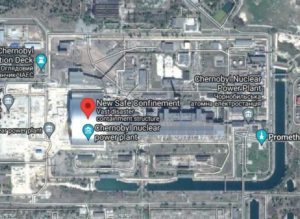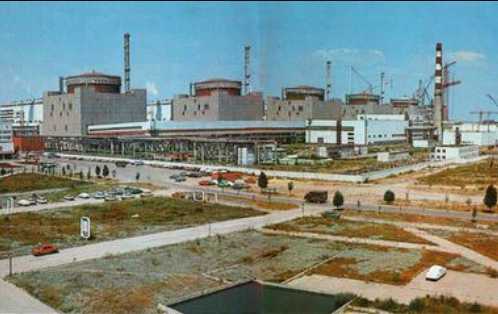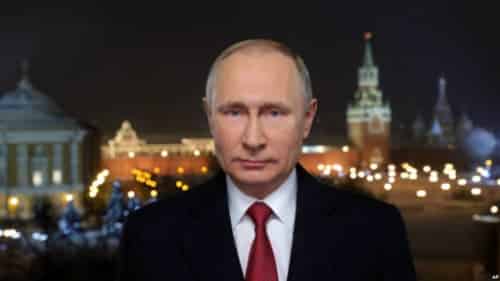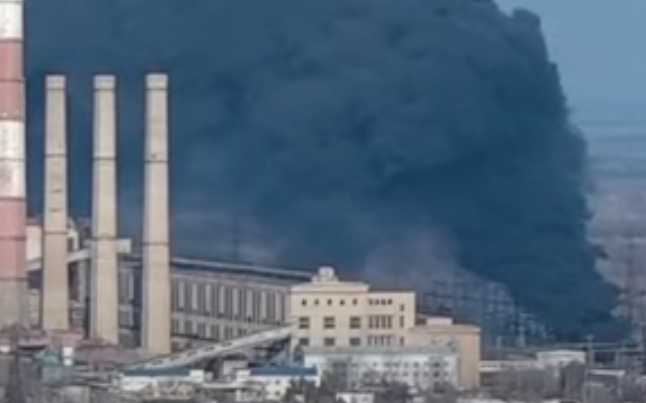Experts attribute the increased radiation levels to the Russian military’s current assault on Ukraine.

The Ukrainian government warned Friday that radiation near the Chernobyl nuclear power plant has “exceeded” control levels, a day after the Russian military took control of the area during its ongoing invasion, which has reached the capital of Kyiv.
The State Nuclear Regulatory Inspectorate of Ukraine said that local experts attribute the increased gamma radiation dose rate to the “disturbance of the top layer of soil from [the] movement of a large number of radio heavy military machinery through the Exclusion zone and increase of air pollution.”
“The condition of Chernobyl nuclear facilities and other facilities is unchanged,” according to Ukrainian officials.
Russian officials, meanwhile, continue to insist that radiation levels are normal, the Washington Post reported Friday.
“Radiation levels are normal in the NPP [nuclear power plant] area,” said Russian Defense Ministry spokesperson Igor Konashenkov. “The NPP personnel continue to operate the power plant as usual and to monitor radiation levels.”
The 1986 meltdown of a nuclear reactor at Chernobyl left the 1,000-square mile region surrounding the decommissioned power plant one of the most radioactive places on the planet, with large amounts of nuclear waste stored underground and on site.
Ukrainian Interior Minister Anton Herashchenk warned Thursday that “if the invader’s artillery hits and ruins/damages the collectors of nuclear waste, radioactive nuclear dust can be spread over the territory of Ukraine, Belarus, and the [countries] of the E.U.”
According to Dmytro Gumenyuk, a nuclear safety expert based in Kyiv, Russian or Ukrainian forces could accidentally hit sensitive facilities, causing radiation to “contaminate air, soil, and waterways, affecting not only Ukraine but also Russia and much of Europe.”
On Thursday morning, the Ukraine Ministry of Foreign Affairs tweeted that “if Russia continues the war, Chernobyl can happen again in 2022.”
Prior to the military attack ordered by Russian President Vladimir Putin, nuclear energy specialists joined members of the International Physicians for the Prevention of Nuclear War—a coalition of medical groups that won the Nobel Peace Prize in 1985 for its non-proliferation work—to sound the alarm about a potential nuclear “catastrophe” in Ukraine that could have horrific consequences for all of Europe—and potentially the entire planet.
Other nuclear experts, such as Bennett Ramberg, have also demanded deescalation to avert a deadly calamity.
“Of all the obvious dangers that come with war, one of the most far-reaching in the current Russia-Ukraine conflict has been woefully underappreciated. Even if commanders took pains to avoid striking Ukraine’s 15 nuclear power reactors, that might not be enough to avoid a catastrophe,” Ramberg wrote in an op-ed for Project Syndicate last week.
“The reactors present a daunting specter. If struck, the installations could effectively become radiological mines. And Russia itself would be a victim of the ensuing wind-borne radioactive debris,” he observed. “Were a reactor core to melt, explosive gases or belching radioactive debris would exit the containment structure.”
“Once in the atmosphere, the effluents would settle over thousands of miles, dumping light to very toxic radioactive elements on urban and rural landscapes,” added Ramberg. “And spent nuclear fuel could cause further devastation if storage pools were set afire.”
Common Dream’s work is licensed under a Creative Commons Attribution-Share Alike 3.0 License. Feel free to republish and share widely.
[content id=”79272″]








